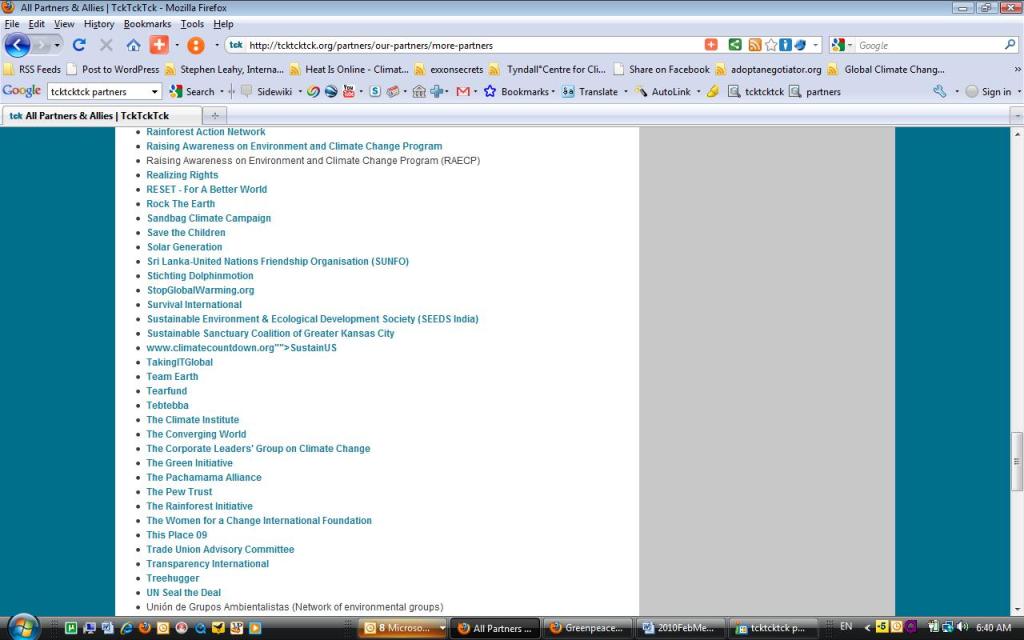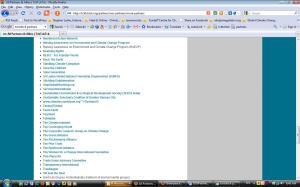Mar 16
20100
TckTckTck, World Wildlife Fund (WWF)
Alcoa BADNGOs Citigroup Coca-Cola. Coke DuPon Earth Hour Greenwash J.P. Morgan Kodak Palm Oil Philip Morris Sears TckTckTck Partner The Bank of America The Bank of Tokyo Waste Management Weyerhaeus Woolworths World Wildlife Fund WWF www.killercoke.org
EDITORIAL: Earth Hour, corporate sponsors and burning planets
14 March 2010
“Earth Hour” will be held around the world on March 27. The event is organised by the World Wildlife Fund (WWF) and involves participants switching off their lights for the hour as a symbolic declaration of support for environmental action.
The Earth Hour website is sponsored by, among others, Woolworths Limited, the giant supermarket and retail corporation. With the amount of waste and pollution associated with the retail industry in frivolous consumption, built-in obsolescence and so on, this would seem an odd choice for sponsor.
WWF has a shocking record for quite uncritically accepting sponsorship from polluting industries. Back in 2002, Counterpunch co-editor Jeffrey St. Clair exposed WWF’s links with logging corporation Weyerhaeuser, writing on Dissidentvoice.org that WWF “rakes in millions from corporations, including Alcoa, Citigroup, the Bank of America, Kodak, J.P. Morgan, the Bank of Tokyo, Philip Morris, Waste Management and DuPont”.
In November 2009, more than 80 environmental organisations from 31 countries signed a letter attacking WWF’s founding role in the “Roundtable on Sustainable Palm Oil”. The letter said: “WWF’s involvement is being used by agrofuel companies to justify building more refineries and more palm oil power stations in Europe.”
The palm oil industry is a leading cause of destruction of tropical rainforests.
Currently, WWF is one of the key “environment” organisations in Australia promoting “clean coal”. This hypothetical technology is the main prop in the Australian coal industry’s smoke-and-mirrors trickery to keep the public off its back.
Clearly, WWF is a willing aide to corporate polluters who want to be seen to be cleaning up their act. How much does the environment get back? Whatever WWF ekes out for payment in its bargaining with the devil, it isn’t working for the environment.
The Earth Hour website includes a link to a calculator where visitors can work out their own personal carbon footprint. If you follow links for what you can do after the event to “make Earth Hour every hour” you will be directed toward various governmental awareness raising schemes and green power providers.
If the event simply raised people’s awareness a little, it would be better than nothing. But sometimes “not enough” is worse than nothing: it’s a false hope. The direct links to our climate-criminal government, as much as any donations from polluting corporations, are like telling people to go back to sleep, not to get up, when the house is burning down.
Although individuals will gain positive feelings from participating in Earth Hour, climate activists have to channel popular concern about climate change into rebellion, not tokenism. Or our whole planet will burn down around us.






